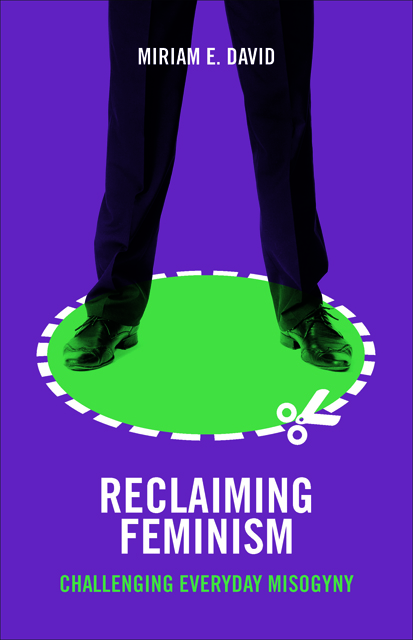Book contents
- Frontmatter
- Contents
- About the author
- Acknowledgements
- A note about the waves of feminism
- one Feminist reflections on a lifetime in academe
- two Changing feminism
- three Feminist pioneers
- four Gender and generations
- five Cultivating feminists
- six A feminist resurgence
- seven Feminists on campus
- eight Feminist fortunes
- References and select bibliography
- Index
seven - Feminists on campus
Published online by Cambridge University Press: 15 April 2023
- Frontmatter
- Contents
- About the author
- Acknowledgements
- A note about the waves of feminism
- one Feminist reflections on a lifetime in academe
- two Changing feminism
- three Feminist pioneers
- four Gender and generations
- five Cultivating feminists
- six A feminist resurgence
- seven Feminists on campus
- eight Feminist fortunes
- References and select bibliography
- Index
Summary
It is clear that feminism is now in the eye of the storm of neoliberalism and ‘academic capitalism’, a term that the US feminist Sheila Slaughter invented almost 20 years ago to illustrate how entwined HE is with advanced economic systems. The term is now seen as a classic, with my colleague, Sir Peter Scott, professor of HE, mentioning this in his presentation for the new, well-endowed Centre for Global Higher Education (CGHE) (Havergal, 2015). This term has already lost its feminist edge, as CGHE has become the main source of research for British and international HE policies: neither feminism nor gender feature in the 15 or more projects planned for the next five years. When asked about this, Professor Simon Marginson, director of CGHE, mentioned his gender sensibilities, and how this would be threaded through all the projects. This absence or lack of specificity is yet another example of everyday misogyny in universities today.
In this chapter I explore some evidence of feminist contestations on university campuses, given how important HE is to all of our economic, personal, political and sociocultural lives today, as part of the zeitgeist.
First, I set the scene by demonstrating contested notions about gender equality in HE between feminists and neoliberals, with neoliberals arguing that, with the achievement of formal statistical equality in terms of students, there is no longer any issue to contend with. This is misogyny masquerading as metrics, to paraphrase my colleague Professor Louise Morley of the Centre for Higher Education Equity Research (CHEER) at the University of Sussex. I then muse about examples of feminist contestations over sexual harassment among students, training students to challenge sexual violence, and between feminists as academics or students. Some of these latter are very unfortunate media debates between waves of feminists on campus, showing how feminism per se has been brought into public disrepute. Yet feminist campaigning has successfully exposed sexual assault or harassment, ‘rape culture’ or ‘lad culture’ on campus, although policies remain woefully inadequate, not only for students, but also for women and feminist academics.
The development of global HE in expansionary times has transformed women’s involvement as both students and academics, but recent moves towards neoliberalism and austerity have altered how feminists can take action within the academy, as Jessica Ringrose and others have already intimated.
- Type
- Chapter
- Information
- Reclaiming FeminismChallenging Everyday Misogyny, pp. 173 - 206Publisher: Bristol University PressPrint publication year: 2016

